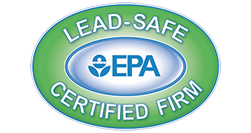
HOW DO I FIND THE RIGHT CONTRACTOR?
MAKE SURE THE CONTRACTOR IS LICENSED
All contractor advertisements, whether it is an ad in the phone book or newspaper, a flyer that shows up on your front doorstep, or the company’s name on the side of a truck, MUST have the contractor’s state license number. You can check license status online at www.cslb.ca.gov or call 1-800-321-CSLB (2752).
SHOP AROUND BEFORE HIRING A CONTRACTOR
Get at least three written bids on your project, and make sure you’re comparing bids based on identical plans, specifications and scope of work. Do not automatically accept the lowest bid. In fact, you should beware of any bid that is substantially lower than the others. It probably indicates that the contractor made a mistake or is not including all the work quoted by his or her competitors. You may be headed for a dispute with your contractor if you accept an abnormally low bid. It is also possible that this contractor will cut corners or do substandard work in order to make a profit on the job.
When the contractor comes to your house to give you a bid, ask to see their pocket license, along with a picture ID. You want to make sure the person you’re dealing with is the same person on the license.
ASK FOR PERSONAL RECOMMENDATIONS
Friends and family may have recently had similar projects completed. If they are satisfied with the results, chances are you will be too. Other good reference sources include local customers, material suppliers, subcontractors, and financial institutions to check whether the contractor is financially responsible. If you are still unsure, you may also wish to check the contract out with your local building department, trade association or union, consumer protection agency, consumer fraud unit and/or the Better Business Bureau.
VERIFY THE CONTRACTOR’S BUSINESS LOCATION AND TELEPHONE NUMBER
A contractor who operates a business out of the back of a pickup truck with a cellular telephone may be difficult to find to complete a job or fix something that has gone wrong after the last bill is paid. You can find a licensed contractor’s “address of record” at www.cslb.ca.gov when you look up their license status.
VERIFY THE CONTRACTOR’S WORKERS’ COMPENSATION AND COMMERCIAL GENERAL LIABILITY INSURANCE COVERAGE
Ask to see a copy of the certification of insurance, or ask for the name of the contractor’s insurance carrier and agency to verify that the contractor has insurance.
If the state of California, if a contractor has employees, they’re required to carry Workers’ Compensation Insurance.
Commercial general liability insurance is not required, however, it covers damage to your property. If the contractor does not carry general liability insurance, they should be able to explain how they would cover losses that would ordinarily be covered by insurance. If your contractor damages your property and doesn’t carry commercial general liability insurance, you or your insurance policy could end up paying for damages.
A licensed contractor must provide you with information regarding both types of
insurance in your written contract.
LEARN ABOUT THE CONTRACTOR’S BONDS
California-licensed contractors are required to have a contractor’s license bond. It is important to know what bonds do and do not cover. Some bonds are designed to protect you against substandard work that does not meet with local building codes. Bonds do not assure the financial or professional integrity or competency of a contractor. Institutional lenders such as savings and loans, insurance companies or commercial banks generally require license contractors to secure bonds for large jobs.


